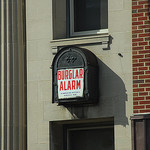 Property crime – what are your rights?
Property crime – what are your rights?
Guest property/criminal law blog post regarding property crime, based mainly on US law.
What Is a Property Crime?
The following are classified as property crimes:
• Burglary
• Larceny-theft
• Motor vehicle theft
• Arson
Burglary also goes by the name of “breaking and entering.” If the point of breaking and entering is to commit some other illegal act, the charge of burglary will ensue. Larceny-theft may be charged when a person has been accused of taking a possession that belongs to another, thus depriving the rightful owner of its use. Generally, this is charged in instances of non-violence.
People will be charged with motor vehicle theft if they successfully steal another person’s automobile or in cases when they have just attempted to do so. Arson will be charged if a person intentionally burns property belonging to another person. In some states, it also includes the burning of one’s own property for the purpose of committing another illegal act. For example, burning one’s own home to collect the money awarded through the homeowner’s insurance policy would qualify as arson.
What Happens When People Are Arrested for a Property Crime?
Those suspected of having committed a property crime will be arrested and taken to the police station. They will be read their Miranda rights informing them of the following four things:
• They have the right to remain silent
• If they give up their rights to remain silent, what they say may be used as evidence against them in court
• They have the right to hire an attorney to represent them
• If they are unable to afford an attorney, the state is obligated to provide them with one
After they arrive at the police station, law enforcement officers will want to question them, but they will need to inform the accused parties of their Miranda rights first. The accused parties may decline to answer any questions until their lawyers are present.
At this time, the booking process will begin. The accused will have their pictures and fingerprints taken and will be asked for their names and addresses. After this has been completed, the accused will have the right to call their families to let them know what has occurred. They may also call an attorney at this time.
Next the accused will be required to give up the personal belongings and clothing that they had with them at the time of arrest. If these items are deemed to be evidence, they will be seized and presented at trial. Otherwise, they will be kept for safekeeping and returned after the accused parties are allowed to leave the jail.
The Accused Parties’ Fourth Amendment and Sixth Amendment Rights
During the investigation, the accused parties will be entitled to protection under the Fourth Amendment of the Constitution that prevents investigators from performing any illegal searches and seizures.
The Sixth Amendment to the Constitution offers anyone accused of a crime the right to a speedy trial. The trial must occur within a reasonable amount of time following the accused parties’ arrest. The defendants are also entitled to be judged by a jury that maintains its impartiality throughout the trial.
The Rights of the Victims and Witnesses
The accused have several rights that must be protected, but others involved in property crimes also have rights. The rights of victims and witnesses of property crimes will depend on the state in which these people reside. For example, witnesses and victims are entitled to have their questions about the case answered, and they will be able to contact the prosecutor whenever these questions arise.
This article was composed by Roy McClure for the team at sell house quickly.

